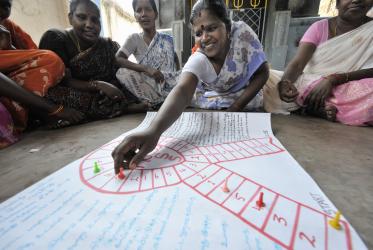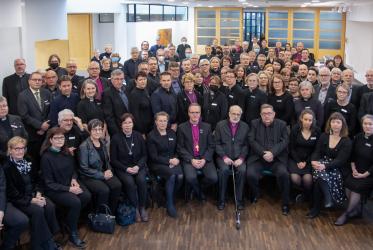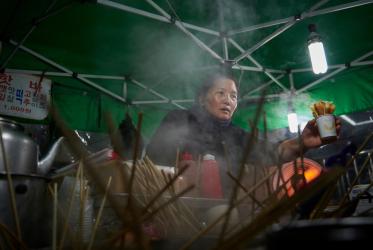Displaying 1 - 20 of 32
Young people in Togo: “Hear our voice! We want to tell our stories!”
07 November 2019
Hanbeet Rhee: “Young people can be bridges”
17 October 2019
Knowledge of gender roles deepens in Togo
03 June 2019
Peacemakers at work in Sri Lanka
29 April 2019
Thursdays in Black: sharing support, transforming lives
21 February 2019
#WCC70: A prayer about health and healing
20 July 2018
Youth engagement fundamental to HIV response
18 April 2017
New videos help congregations hasten HIV response
20 October 2016
Voices from HIV workshop reflect deep impact
07 April 2016
















